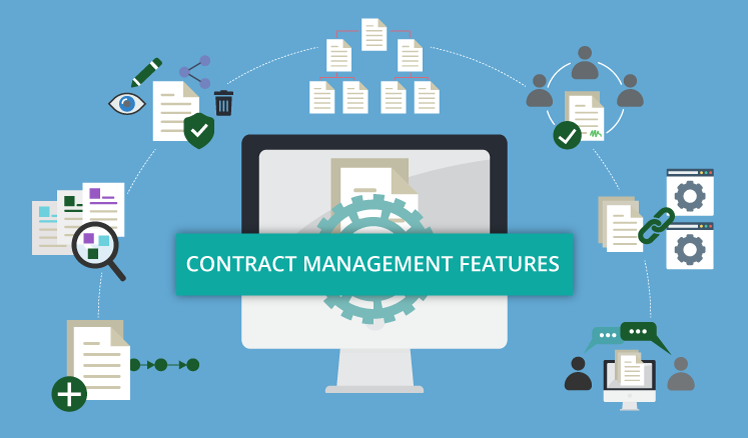The Covid-19 pandemic has jolted the global economy to an unbelievable extent. Yes, we are slowly recovering from the havoc wreaked by this tormenting outbreak. Yet, a lot of things have changed, including business practices, and we may have to follow them for a long, long time now.
Businesses have seen a dramatic shift from on-site to remote jobs. It sounds a bit relaxing, but it has raised concerns for confidential and highly sensitive businesses such as Mergers & Acquisitions. M&As are the type of projects where you need utmost security and confidentiality, especially during the Due Diligence stage.
The current challenge for M&A teams is how to go through this process effectively and safely? If you are looking for the answer, here is a complete guide for you.
6 important practices to carry out due diligence process remotely
1. Make sure that you are using the right tech
This sudden calamity would have created more chaos in the M&A market. But thanks to virtual data room providers for saving the day. Data room software, aka a virtual data room, has made it a lot easier to undertake any financial or legal deals remotely. In fact, businesses confidently rely on virtual data room providers for due diligence where all the stakeholders and M&A teams can easily share information, files, or documents.
Even the Wall Street Journal couldn’t hold back when it came to praising a due diligence data room. As per an article from WSJ, virtual data rooms have become an integral part of deal-making as all parties can assess all relevant documents and financial records.
Apart from that, software like Webex, Zoom, Microsoft Teams have made it easier to conduct video conferencing and virtual site inspections. Face-to-face interactions have been an important part of the due diligence process, and video conferencing has provided a much-needed alternative.
2. Make preparations for an extended due diligence periods
The due diligence process is surely time taking and to be honest, it should take enough time. Why? Firstly, because all the concerned parties need to make sure that the deal under consideration is making sense. And secondly, all the sides are completely honest about their claims.
Face-to-face meetings were an ideal option for the due diligence process, but that luxury is not easily available now. That is why businesses should prepare for a longer due diligence period. Modern technology is amazing, but connectivity issues, user errors, video fatigue, etc., can create hurdles in carrying out the due diligence process smoothly.
Even an article from the American Bar Association stated that extended due diligence periods are a growing practice in M&A markets. Businesses now take 90 to 120 days for the due diligence process.
3. Don’t neglect the confidentiality issues
Data confidentiality is indeed the backbone of M&A deals. In fact, security and data privacy issues become more intense when businesses carry out the due diligence process remotely. Therefore, it is important to educate all the relevant team members about your privacy or confidentiality policies.
Moreover, M&A teams need to make sure they use technology effectively. When you use multiple tech solutions in M&A deals, it becomes difficult to control the data flow, and it may fall into the wrong hands.
This is where virtual data room providers are very handy because of their security features, such as:
- Document watermarks
- Two-factor authentication
- Permission-based user roles
- Audit logs
4. Make sure you connect with right people
Generally, both parties in Mergers & Acquisitions are pretty familiar with each other. However, due to the pandemic, it is highly possible that M&A teams are meeting for the first time. In such cases, the remote due diligence process becomes more tricky as you have to dig deeper to understand whom you are dealing with.
To nullify this “anonymity” factor, it will be helpful if you can connect to venture capital firms, entrepreneurs, and co-investors for other company’s verification. Apart from that, you can consult M&A lawyers and advisors as well.
5. Keep your meeting agendas in order
Virtual meetings can be very tiring, so there is absolutely no point in wasting time. Therefore, it is crucial to have a well-prepared meeting agenda and then follow it religiously. This will allow all the meeting participants to share their concerns and data easily. A detailed and properly organized meeting agenda saves time and keeps the proceedings on track.
6. Ensure maximum communication with key stakeholders
Miscommunication is the last thing you would want in M&As. An honest, clear, and timely communication between the stakeholders and M&A teams holds the key, especially during due diligence. Timely communication becomes more important when the M&As are taking place remotely, and lesser face-to-face interactions mean all the stakeholders and M&A teams must communicate regularly to avoid any type of risk.
The takeaway
Remote due diligence can be a very challenging process for the stakeholders and M&A teams. Slight negligence means the confidential information may fall into the wrong hands. However, modern technology, such as data room software, has made it easier to store and share information securely. And we hope that this guide can provide basic due diligence assistance to all those who are looking for it.








Add Comment